87 Self-Reflection Questions for Introspection [+Exercises]
 Have you ever thought about your own thoughts or questioned your mental processes?
Have you ever thought about your own thoughts or questioned your mental processes?
Do you sometimes take time to clarify your values in a moment of doubt or uncertainty?
If you answered “yes,” you are no stranger to self-reflection and introspection (terms that will be used more or less interchangeably in this article), an important psychological exercise that can help you grow, develop your mind, and extract value from your mistakes.
Read on if you’d like to learn the meaning of self-reflection and introspection, reasons why it’s important, and tools and techniques for practicing it yourself.
Before you continue, we thought you might like to download our three Self-Compassion Exercises for free. These detailed, science-based exercises will not only help you increase the compassion and kindness you show yourself but will also give you the tools to help your clients, students, or employees show more compassion to themselves.
This Article Contains:
- What Is Introspection? A Definition
- What Is the Importance of Introspection?
- 70 Self-Reflective Questions to Ask Yourself
- 10 Self-Reflection Exercises, Activities, and Techniques for Adults and Students
- 4 Self-Reflection Worksheets and Tools
- The 3 Best Books on Self-Reflection and Introspection
- A Take-Home Message
- References
What Is Introspection? A Definition
Introspection can be practiced both as an informal reflection process and a formal experimental approach, and the two have different definitions. Still, both processes can be undertaken by anyone with curiosity and determination (Cherry, 2016).
The informal reflection process can be defined as examining one’s own internal thoughts and feelings and reflecting on what they mean. The process can be focused on either one’s current mental experience or mental experiences from the very recent past.
The formal experimental technique is a more objective and standardized version of this, in which people train themselves to carefully analyze the contents of their own thoughts in a way that’s as unbiased as possible.
The original idea of introspection was developed by Wilhelm Wundt in the late 1800s (McLeod, 2008). Wundt focused on three areas of mental functioning: thoughts, images, and feelings. Wundt’s work eventually led to the current work on perceptual processes and the establishment of the field of cognitive psychology.
What Is the Importance of Introspection?
 So, why is introspection important?
So, why is introspection important?
Researchers have shown that we think more than 50,000 thoughts per day, of which more than half are negative and more than 90% are just repeats from the day before (Wood, 2013).
If you don’t make the time and effort to refocus your mind on the positive through introspection, you won’t give yourself the opportunity to grow and develop.
Enhancing our ability to understand ourselves and our motivations and to learn more about our own values helps us take the power away from the distractions of our modern, fast-paced lives and instead refocus on fulfillment (Wood, 2013).
The importance of doing it right
Reflecting on ourselves and our environments is a healthy and adaptive practice, but it should be undertaken with some care—there is, in fact, a wrong way to do it.
When your focus on introspection has morphed from a dedication to an obsession, you have taken it too far. In fact, those who take self-reflection too far can end up feeling more stressed, depressed, and anxious than ever (Eurich, 2017).
In addition, it is all too easy for us to fool ourselves into thinking we have found some deep insight that may or may not be accurate. We are surprisingly good at coming up with rational explanations for the irrational behaviors we engage in (Dahl, 2017).
To help stay on the right path with your self-reflection, consider asking more “what” questions than “why” questions. “Why” questions can highlight our limitations and stir up negative emotions, while “what” questions help keep us curious and positive about the future (Eurich, 2017).
With this important point in mind, let’s move on to the questions, exercises, and worksheets that you can use to work on your own self-reflection.
70 Self-Reflective Questions to Ask Yourself
 There are nearly endless questions, prompts, and ideas you can use to take a self-reflection break. Some of these can be asked, answered, and addressed every day, while others may best be saved for occasional self-reflection.
There are nearly endless questions, prompts, and ideas you can use to take a self-reflection break. Some of these can be asked, answered, and addressed every day, while others may best be saved for occasional self-reflection.
Read through the following three lists to get some ideas for introspective questions. Answering them can take you from feeling like you don’t understand yourself to knowing yourself like the back of your hand.
These 10 questions are great ways to jumpstart self-reflection (Woronko, n.d.):
- Am I using my time wisely?
- Am I taking anything for granted?
- Am I employing a healthy perspective?
- Am I living true to myself?
- Am I waking up in the morning ready to take on the day?
- Am I thinking negative thoughts before I fall asleep?
- Am I putting enough effort into my relationships?
- Am I taking care of myself physically?
- Am I letting matters that are out of my control stress me out?
- Am I achieving the goals that I’ve set for myself?
The following 30 questions are questions you can ask yourself every day to get to know yourself better (William, n.d.):
- Who am I, really?
- What worries me most about the future?
- If this were the last day of my life, would I have the same plans for today?
- What am I really scared of?
- Am I holding on to something I need to let go of?
- If not now, then when?
- What matters most in my life?
- What am I doing about the things that matter most in my life?
- Why do I matter?
- Have I done anything lately that’s worth remembering?
- Have I made someone smile today?
- What have I given up on?
- When did I last push the boundaries of my comfort zone?
- If I had to instill one piece of advice in a newborn baby, what advice would I give?
- What small act of kindness was I once shown that I will never forget?
- How will I live, knowing I will die?
- What do I need to change about myself?
- Is it more important to love or be loved?
- How many of my friends would I trust with my life?
- Who has had the greatest impact on my life?
- Would I break the law to save a loved one?
- Would I steal to feed a starving child?
- What do I want most in life?
- What is life asking of me?
- Which is worse: failing or never trying?
- If I try to fail and succeed, what have I done?
- What’s the one thing I’d like others to remember about me at the end of my life?
- Does it really matter what others think about me?
- To what degree have I actually controlled the course of my life?
- When all is said and done, what will I have said more than I’ve done?
Finally, the following 30 prompts and questions are great ways to put your journal to use (Tartakovsky, 2014):
- My favorite way to spend the day is . . .
- If I could talk to my teenage self, the one thing I would say is . . .
- The two moments I’ll never forget in my life are . . . (Describe them in great detail, and what makes them so unforgettable.)
- Make a list of 30 things that make you smile.
- “Write about a moment experienced through your body. Making love, making breakfast, going to a party, having a fight, an experience you’ve had or you imagine for your character. Leave out thought and emotion, and let all information be conveyed through the body and senses.”
- The words I’d like to live by are . . .
- I couldn’t imagine living without . . .
- When I’m in pain—physical or emotional—the kindest thing I can do for myself is . . .
- Make a list of the people in your life who genuinely support you, and whom you can genuinely trust. Then, make time to hang out with them.
- What does unconditional love look like for you?
- What things would you do if you loved yourself unconditionally? How can you act on these things, even if you’re not yet able to love yourself unconditionally?
- I really wish others knew this about me . . .
- Name what is enough for you.
- If my body could talk, it would say . . .
- Name a compassionate way you’ve supported a friend recently. Then, write down how you can do the same for yourself.
- What do you love about life?
- What always brings tears to your eyes? (As Paulo Coelho has said, “Tears are words that need to be written.”)
- Write about a time when your work felt real, necessary and satisfying to you, whether the work was paid or unpaid, professional or domestic, physical or mental.
- Write about your first love—whether it’s a person, place or thing.
- Using 10 words, describe yourself.
- What’s surprised you the most about your life or life in general?
- What can you learn from your biggest mistakes?
- I feel most energized when . . .
- “Write a list of questions to which you urgently need answers.”
- Make a list of everything that inspires you—whether books, websites, quotes, people, paintings, stores, or stars in the sky.
- What’s one topic you need to learn more about to help you live a more fulfilling life? (Then, follow through and learn more about that topic.)
- I feel happiest in my skin when . . .
- Make a list of everything you’d like to say no to.
- Make a list of everything you’d like to say yes to.
- Write the words you need to hear.
10 Self-Reflection Exercises, Activities, and Techniques for Adults and Students
 Aside from the questions and prompts listed above, there are many exercises and activities that can open you up to valuable self-reflection.
Aside from the questions and prompts listed above, there are many exercises and activities that can open you up to valuable self-reflection.
For example, the five self-examination exercises listed below (Bates, 2012) are a good way to get started with self-reflection. They’re simple and easy to do, but they can familiarize you with the process for more in-depth reflection in the future.
Self-Examination Exercise 1
Consider whether or not you tend to analyze people or diagnose their problems for them without their encouragement or request.
Often when we hold information that has helped us to make sense of the world, we want to share it. This information, when unprompted and delivered to another person, sometimes doesn’t feel so good. They may feel like you are telling them that something about them is wrong, something that they might not necessarily agree with.
Remind yourself that this information needs to be asked for and not prescribed by you, no matter how valid it feels to pass it on (Bates, 2012).
Self-Examination Exercise 2
This is a good exercise if you tend to expend a lot of energy trying to understand what upsets you about another person’s actions. You may also spend a lot of energy thinking of ways to address that person about what upsets you.
Not only does this burn a lot of your energy, but it also can have an unintended effect on the person who has upset you. When you place a clear emphasis or focus on what is wrong when speaking with someone, it implies that you are dissatisfied and unhappy.
Usually, the issue you have is not something that is making you terribly unhappy, just an annoyance or irritation, so this doom and gloom is not the message you want to deliver. It’s just a single issue that needs attention, but it can seem much bigger and more pervasive to the person you are planning to discuss it with.
Try to remind yourself that this problem, no matter how valid an issue it is or how important it is to you, is not the whole of your feelings. When you deliver this information, remember that a person who loves you does not want to be the cause of your unhappiness—do not make them feel an unnecessary amount of pain as a result of the unhappiness they’ve caused you.
Keep your focus on the big picture when you bring up issues, or you risk turning a small issue into a much broader problem (Bates, 2012).
Self-Examination Exercise 3
Do you frequently interrupt people or constantly think of your own stories to share while they are talking? If you’re like a lot of social people, the answer is probably yes.
In order to relate to others, we have to share a little bit of ourselves with them—your stories can help you establish common ground with others or make you closer with them. However, if you’re only focused on sharing your stories, it can distract you from the greater purpose of a conversation.
In our eagerness to relate, please, entertain, and share, we often remove ourselves from the present, reducing our ability to be sensitive and engaged listeners. Even if we spend our whole lives trying to be good listeners, sometimes we slip out of practice in empathizing or identifying with the person we’re talking to, or we lose an opportunity to comfort or entertain the other person.
Next time you have a conversation with a loved one and you find yourself thinking ahead of them, take a moment to pause and truly listen. Don’t think about how you can personally identify with what they are talking about, and don’t search your memory bank for a relevant story of your own—just listen.
It’s a rewarding experience to truly soak in what another person is saying, both for you and the other person (Bates, 2012).
Self-Examination Exercise 4
Sometimes when we work very hard to do good things, we get to a level of comfort with that fact, and we begin to talk about it to others. That can be a great thing in that it allows us to own our efforts and our actions and, with that, acknowledge our goodness to ourselves.
But for this exercise, consider how you might feel if you were to do things that are good, but only for your own knowledge. The next time you do something really wonderful, try keeping that wonderful thing to yourself and not sharing it with anyone.
Often when a person is good and loving, they don’t have to tell anyone; it’s a truth that shines from every angle of their person. As an experiment, keep some knowledge to yourself, as a gift to you (Bates, 2012).
Self-Examination Exercise 5
For this exercise, you need only to do one thing: Consider what you don’t know.
When we get to a place of comfort in our skin and in the world, we tend to lose the ability to see things from a different perspective. Things make sense to us in our own point of view, so what’s left to know?
Everything, it turns out.
By this, we mean to try and remind yourself of these facts: You cannot know or understand everything, and you are not the judge of what is right for another person.
You can neither read minds nor know what the future holds. You can only exist in one moment at a time, and you are changing every day.
Trust that sometimes others know themselves and their lives better than you ever could. Listen with the awareness that you might learn something new.
Be open to the fact that you might one day feel totally different about something that you believe to be fixed—and that includes your sticking points, the “unchangeables” you thought were forever set in stone. Let what you don’t know and can’t know be a comfort rather than something to fear, because it means that anything is possible (Bates, 2012).
Once you have found your footing with these self-examination exercises, the following introspective exercises are a great next step.
4 Self-reflection technique – OER Africa
Affirmations
Creating affirmations is a helpful way to clear your mind and put things in perspective. Affirmations can be defined as positive phrases or statements used to challenge negative or unhelpful thoughts.
For this exercise, write a list of at least 50 affirmations. They should address what you want to embrace, improve, and achieve in your life.
Follow these instructions when composing and practicing your affirmations:
- Write the affirmations in the present tense and be sure to use the word “I” throughout the affirmations;
- Focus on the things that are occurring now that will lead to your future success. You may have negative thoughts pop up, but do your best to let go of the negative thoughts and replace them with positive thinking;
- Repeat your affirmations aloud to help reprogram your mind with more positive thoughts.
Following these steps can help you open yourself up to the positive in your life and take steps that will lead you to the future you want (Holothink, n.d.).
Subconscious Mind Exercise
In this exercise, you will dive into your subconscious. Don’t worry, it’s not as painful or scary as it sounds!
Your subconscious mind is where your self-image is stored. All of your attitudes, experiences, beliefs, and values are stored deep in your subconscious, driving your behavior and forming the core of who you are.
We don’t often take time to think about ourselves on this level. So in this exercise, take some time and put a concerted effort into thinking about your attitudes, experiences, beliefs, and values. It may take a few sessions of self-reflection to really uncover your core beliefs, but it’s worth the effort it takes to learn about yourself.
Reflecting on this core component of yourself will help you gain greater self-awareness. Much like meditation, it will help you achieve a new, higher level of consciousness, and it may just help you find valuable information and answers about yourself and your beliefs (Holothink, n.d.).
Visualization Exercise
This exercise offers you an opportunity to put your creativity to use.
Create a box, a vision board, or some other medium to store and display who you are and what your hopes and dreams are for the future. You can create or decorate your box or board however you’d like. Use whatever you feel represents yourself and what’s important to you.
Place pictures, words, drawings, poems, or small items of personal significance on your board or in your box. The more details you include, the better.
The end result is a visual representation of yourself and what you love. Come back to the box or board when you’re having a dilemma or trying to figure out the best course of action, and draw from this visual representation of yourself to help you make decisions (Holothink, n.d.).
For this exercise, feel free to put your imagination to good use—the sky’s the limit when it comes to visualization.
Questions About Yourself
This exercise is simple, but that doesn’t mean it’s easy. All you need to do is ask yourself some questions.
Ask yourself questions about yourself. Write down the questions, then write down your answers to the questions. Ask yourself about your past, present, and future, and compose answers to the questions that are positive, insightful, and motivating to you.
Don’t worry about coming up with the “right” answers—there aren’t any right answers, and your answers will likely change over time. And be as creative as you’d like with the questions and answers since no one else needs to answer or read them but you.
Be sure to structure your questions to include details about your hopes and dreams. The more detailed your questions and answers, the more opportunity you have to dig into some valuable self-reflection (Holothink, n.d.).
Write and Reflect
Journaling is great for many reasons, and it can be used in several applications for introspection.
For this exercise, get a journal, diary, or notebook with plenty of pages to write in.
Every day, write down three things in your journal:
- At least one positive thing that happened to or around you today;
- A question for yourself (you can use one of the questions from the previous exercise, a question from the lists we covered earlier, or something entirely new), but don’t answer it yet;
- A reflection on the question you wrote the previous day for yourself and an answer to it.
Following these steps, you will write only the first two components on the first day but will write three components every day thereafter (Holothink, n.d.).
4 Self-Reflection Worksheets and Tools
 In addition to the questions, prompts, writing ideas, and exercises included above, here are some worksheets and tools that can help get you started with introspection.
In addition to the questions, prompts, writing ideas, and exercises included above, here are some worksheets and tools that can help get you started with introspection.
Self-Awareness Worksheet
This worksheet is a treasure trove of exercises and ideas to help you think about yourself, including your talents, qualities, values, and perceptions.
The point of this worksheet is to help you know and understand:
- Your beliefs and principles;
- What you value and what is important to you;
- What motivates you;
- Your own emotions;
- Your thinking patterns;
- Your tendencies to react to certain situations;
- What you want out of life.
There are several sections to this worksheet, each of which has its own set of questions and prompts:
– Talents
- What are your greatest talents or skills?
- Which of your talents or skills gives you the greatest sense of pride or satisfaction?
– Traits/Qualities
- What are your five greatest strengths?
- What do you feel are your two biggest weaknesses?
- What qualities or traits do you most admire in others?
– Values
- What are ten things that are really important to you?
- What are the three most important things to you?
- What are the values that you hold nearest to your heart?
– Perception
- How is the “public you” different from the “private you”?
- What do you want people to think and say about you?
- Is it more important to be liked by others or to be yourself? Why?
– Accomplishments
- What three things are you most proud of in your life to date?
- What do you hope to achieve in life?
- If you could accomplish only one thing before you died, what would it be?
– Reflection
- What is something that represents you (e.g., song, animal, flower, poem, symbol, jewelry, etc.)? Why?
- What three things would you like to change most about yourself?
- List three things that you are.
– Finish the Sentence
In the final section, you will be shown several prompts to complete:
- I do my best when . . .
- I struggle when . . .
- I am comfortable when . . .
- I feel stress when . . .
- I am courageous when . . .
- One of the most important things I learned was . . .
- I missed a great opportunity when . . .
- One of my favorite memories is . . .
- My toughest decisions involve . . .
- Being myself is hard because . . .
- I can be myself when . . .
- I wish I were more . . .
- I wish I could . . .
- I wish I would regularly . . .
- I wish I had . . .
- I wish I knew . . .
- I wish I felt . . .
- I wish I saw . . .
- I wish I thought . . .
- Life should be about . . .
- I am going to make my life about . . .
Once you finish this worksheet, you should have plenty of insight into who you really are and what is most important to you. Use your answers to inform your decisions about what goals you choose to strive toward, what you would like to do in the future, and what moves to make next.
You can view, download, or print this worksheet for yourself.
The average human has more than 50,000 thoughts per day; more than half of them are negative, and more than 90% are just a repetition from the day before (Wood, 2013).
This means refocusing your mind on positive thoughts through introspection is essential for personal ascendance and growth. Most people take the end of the year as an opportunity to reflect on the past and set goals for the following year. However, reflections and introspection are critical at any point in time and enable your clients to grow.
Wilhelm Wundt developed the concept of introspection in the late 1800s (McLeod, 2008). According to him, introspection is focused on thoughts, images, and feelings. Introspective questions are often used in the field of cognitive psychology.
Understanding your clients allows you to learn more about their values, internal thoughts, and feelings. Furthermore, it takes the focus away from fast-paced lives and allows your client to be in the present moment and refocus on fulfillment (Wood, 2013).
Besides asking your client reflective questions, another tip is to practice active listening. Being able to stay entirely in the present moment without interruption or projecting your own story onto someone is key to helping your clients flourish. When the urge to share your story arises, pause and take the time to listen.
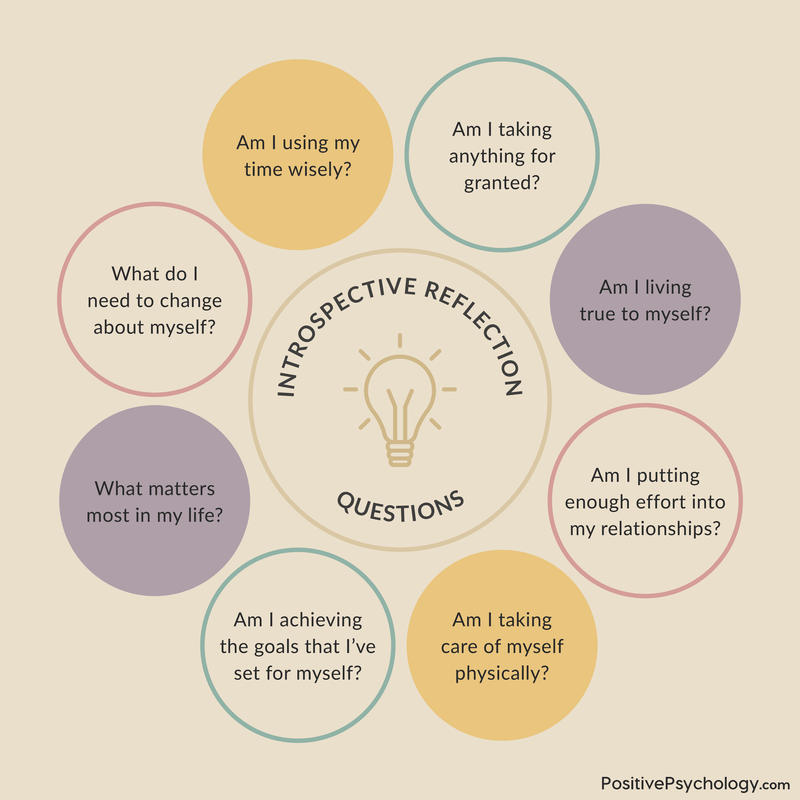
Tool 1: Persona
Before moving on to the empathy map below, first create a “persona,” or a clear character representation of your actual self, your ideal self, and your “ought” self (Kos, n.d.).
In order to create this persona, you will need to thoroughly analyze who you are, who you want to become, and what the social expectations connected to your feelings and behaviors are like in different situations.
Answering questions like the following can help you define these three important selves:
- Why do I want to become [enter a characteristic important to you]? Who in my life was or is like that?
- Who would I be proud if I were [enter a characteristic important to you]? Why?
- How are my feelings in certain situations connected with my actual, ideal, and ought self?
- Am I pushing myself to be something I’m actually not?
- Am I being something I’m not just because others expect it of me?
Use your answers to these questions to help you get an idea of who you are, who you want to be, and who you feel you ought to be. Once this preparation has been completed, move on to creating an empathy map.
Tool 2: Empathy Map
An empathy map can help you engage in a valuable and informative process of self-reflection, using all of your senses to help you identify your needs and the disconnections between what you say and what you do (Kos, n.d.). Don’t worry—we all have a disconnect between what we say and what we do.
This exercise can help you figure out where you have these disconnects and how you can best address them to become the person you want to be.
To create your empathy map, simply draw four quadrants on a piece of paper. Each quadrant represents a different aspect of yourself:
- Seeing;
- Doing;
- Thinking;
- Feeling.
Next, consider a situation that evokes a specific strong emotion in you, like having a fight with your spouse or significant other. In each quadrant, write down the relevant aspects of each perspective.
For example, for the fight scenario, you could write down something like the following:
- Seeing: What are some of the things you saw during the situation?
- Doing: What actions did you do and which behaviors did you notice in yourself? What is the behavioral pattern you can identify?
- Thinking: What were you thinking in that situation? What does this tell you about your beliefs?
- Feeling: What emotions were you feeling? Why? Which past situation do they most remind you of?
On the backside of your piece of paper, on another piece of paper, or next to your four quadrants, create a fifth section. Here, you will write down your insights and ideas based on your empathy map.
The following questions can help you with the self-reflection process while you’re working on your map:
- How is the situation connected to your fears and hopes? What are your fears? What are your hopes? Which of your needs are met or not met in that situation?
- What was the environment in which you encountered the situation? What do you remember from the environment? How did you find yourself in that environment and why? What was your sight focused on?
- What hurts you most in the situation or makes you feel good about the situation?
- What was the feedback you gathered from your environment or other people?
- What are all the positives about the situation? What can you learn about yourself, others, and the world by experiencing that kind of a situation?
Do your best to avoid falling prey to cognitive distortions or reinforcing negative feelings while answering these questions. Go deep, and identify why you feel like you do. Observe, but don’t judge (Kos, n.d.).
Tool 3: Life Satisfaction Chart
A life satisfaction chart is a great way to assess how well you are meeting your goals and furthering your hopes for the future. You can complete this chart periodically to track your progress toward your goals and see what needs to be revised, improved, reduced, or eliminated to help you strive toward them.
Draw a scale from 1 (not at all satisfied) to 10 (extremely satisfied) horizontally, and list the following ten areas of life vertically:
- You;
- Health;
- Relationships;
- Money;
- Career;
- Emotions;
- Competencies;
- Fun;
- Spirituality;
- Technology.
Assess your satisfaction in each of the 10 areas using the scale you created.
Next, take a second look at all the areas where you are only somewhat satisfied (where you used a rating between 4 and 7). It can be hard to effectively reflect when you don’t have a clear idea of whether you are satisfied with a specific area or not.
Go back through these “somewhat satisfied” areas and rate your satisfaction again, but use only ratings between 1 and 3 or 8 and 10. Limiting your options to either “very satisfied” or “not very satisfied” will help you to make a more decisive judgment about your satisfaction in each area.
Highlight every section rated with a 1, 2, or 3 with red, and highlight every section rated with an 8, 9, or 10 with green. Finally, for all ten areas of life, ask yourself, Why did you rate each area how you did? What would make you change your rating?
Repeat this exercise as often as you’d like to help you keep track of your satisfaction with the way your life is going (Kos, n.d.).
The 3 Best Books on Self-Reflection and Introspection
There are many books out there on self-reflection, self-awareness, and introspection, but we recommend the books below as resources to help you start your journey.
1. Question Your Life: Naikan Self-Reflection and the Transformation of Our Stories – Gregg Krech
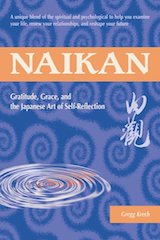 This book will introduce the reader to Naikan, a method of quiet self-reflection that originated in Japan.
This book will introduce the reader to Naikan, a method of quiet self-reflection that originated in Japan.
Like the physical bags we carry when we go on a journey, our hearts and our minds only have so much room—but instead of carrying luggage, they carry stories. Some stories inform our lives and help us understand ourselves, while others don’t serve a purpose and can weigh us down.
In this book, Krech will guide the reader through several powerful examples of people who had an important change of heart or mind as a result of quiet self-reflection, including a woman who hated her mother, a man estranged from his father, a pregnant woman hit by a train, a couple who was struggling with their marriage, and a rabbi who neglected his shoes.
Read this book to open yourself up to seeing the world differently, and finding a better path forward.
You can find it on Amazon.
2. Being Present: A Book of Daily Reflections – David Kundtz
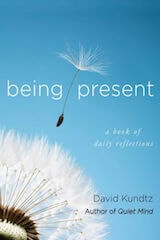 This simple book will help the reader create a life that is more peaceful, rewarding, and awakened.
This simple book will help the reader create a life that is more peaceful, rewarding, and awakened.
Being present can be defined as:
- Paying full attention to what is going on right now;
- Staying in the moment;
- Observing what is, without criticism or judgment;
- Having a balanced concern for things exactly as they are;
- Accepting whatever experience one is having;
- Having an awake participation in ongoing life.
You can use this book as a reminder to be more present through every season of the year and every season of life. The book draws inspiration from poets, scientists, spiritual teachers, children, butterflies, and big cities, and teaches you to accept each day as one full of possibilities and potential surprises.
You can find it on Amazon.
3. 52 Weeks of Self Reflection – Erika R. Dawkins
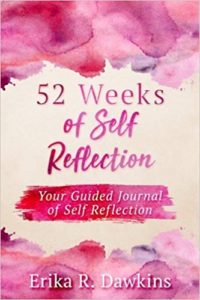 This simple but powerful book will guide the reader through a full year of self-reflection through writing. Each week, the book will introduce you to a new topic that you will either reflect on immediately or incorporate into your life and reflect on at the end of the week.
This simple but powerful book will guide the reader through a full year of self-reflection through writing. Each week, the book will introduce you to a new topic that you will either reflect on immediately or incorporate into your life and reflect on at the end of the week.
You can use this book to guide you through self-reflection. No matter your goal, this guidebook will help you clear your head, see the world from a new perspective, and build a greater understanding of yourself.
You can find it on Amazon.
A Take-Home Message
In this piece, we defined introspection, described the importance of self-reflection (especially healthy self-reflection), and provided many example exercises, activities, and worksheets for you to enhance your understanding of yourself.
Keep in mind that self-reflection is an intensely personal process. If you find other activities that work better for you, feel free to focus on those—but we’d love for you to come back here and share with us what works.
Do you have any other techniques for self-reflection that you like to use? How important do you think introspection is for the average person, or for yourself? Let us know in the comments.
We hope you enjoyed reading this article. Don’t forget to download our three Self Compassion Exercises for free.
- Bates, S. M. (2012, November 11). Check yo’ self: An exercise in self-reflection. Hello Giggles. Retrieved from https://hellogiggles.com/fashion/check-yo-self-an-exercise-in-self-reflection/
- Cherry, K. (2016, June 14). What is introspection? Wundt’s experimental technique. Very Well. Retrieved from https://www.verywell.com/what-is-introspection-2795252
- Dahl, M. (2017). Sometimes ‘introspection’ is you just making stuff up. Science of Us. Retrieved from http://nymag.com/scienceofus/2017/03/sometimes-introspection-is-you-just-making-stuff-up.html
- Eurich, T. (2017). The right way to be introspective (yes, there’s a wrong way). TED. Retrieved from https://ideas.ted.com/the-right-way-to-be-introspective-yes-theres-a-wrong-way/
- Holothink. (n.d.). The art of self-reflection – 5 exercises to find peace in your life. Holothink.org. Retrieved from https://holothink.org/the-art-of-self-reflection-%E2%80%93-5-exercises-to-find-peace-in-your-life/
- Kos, B. (n.d.). Tools to help you with self-reflection. Agile Lean Life. Retrieved from https://agileleanlife.com/tools-to-help-you-with-self-reflection/
- McLeod, S. (2008). Wilhelm Wundt. Simply Psychology. Retrieved from https://www.simplypsychology.org/wundt.html
- Tartakovsky, M. (2014). 30 journaling prompts for self-reflection and self-discovery. Psych Central. Retrieved from https://psychcentral.com/blog/archives/2014/09/27/30-journaling-prompts-for-self-reflection-and-self-discovery/
- William, D. K. (n.d.). 30 thought-provoking questions you should ask yourself every day. Lifehack. Retrieved from http://www.lifehack.org/articles/communication/30-thought-provoking-questions-you-should-ask-yourself-every-day.html
- Wood, K. (2013). The lost art of introspection: Why you must master yourself. Expert Enough. Retrieved from http://expertenough.com/2990/the-lost-art-of-introspection-why-you-must-master-yourself
- Woronko, M. (n.d.). The power of self-reflection: Ten questions you should ask yourself. Lifehack. Retrieved from http://www.lifehack.org/articles/communication/the-power-self-reflection-ten-questions-you-should-ask-yourself.html
Let us know your thoughts
Read other articles by their category
- Body & Brain (49)
- Coaching & Application (57)
- Compassion (26)
- Counseling (51)
- Emotional Intelligence (24)
- Gratitude (18)
- Grief & Bereavement (21)
- Happiness & SWB (40)
- Meaning & Values (26)
- Meditation (20)
- Mindfulness (45)
- Motivation & Goals (45)
- Optimism & Mindset (34)
- Positive CBT (28)
- Positive Communication (20)
- Positive Education (47)
- Positive Emotions (32)
- Positive Leadership (18)
- Positive Parenting (4)
- Positive Psychology (33)
- Positive Workplace (37)
- Productivity (17)
- Relationships (46)
- Resilience & Coping (36)
- Self Awareness (21)
- Self Esteem (38)
- Strengths & Virtues (32)
- Stress & Burnout Prevention (34)
- Theory & Books (46)
- Therapy Exercises (37)
- Types of Therapy (64)


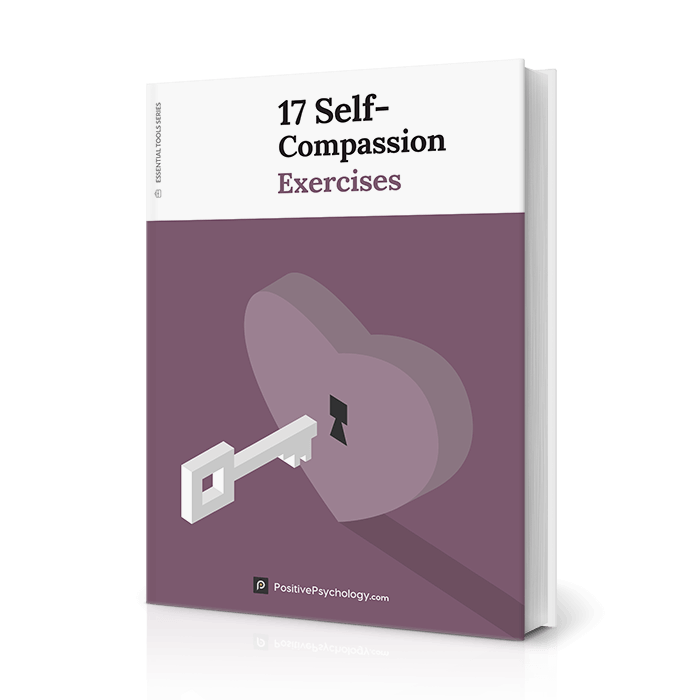


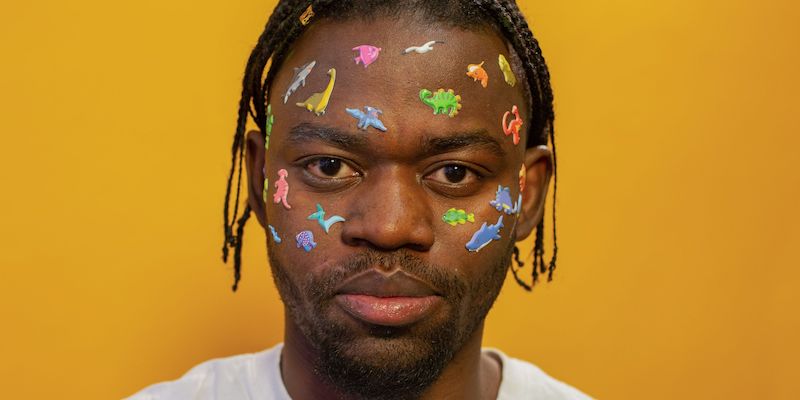
What our readers think
Fantastic article and each of the Reflective Question is like a light house taking us deep inside of our life experiences.
Thank You with deep appreciation in preparing this.
Great article! Self-reflection is necessary for improvement!
A very informative article. I learned alot.
I would say ”Best” information I’ve ever read about Self-reflection
I am really impressed with your writing style. Keep it up. The way you explain a complex topic
in an easy to understand way is really impressive. Thanks for your inspiring thoughts which guided me well during my journey and gave me the hope I was looking for in personal and professional life. Hats off for this content…
First of all, Thank you for writing this article. It was very useful for Self Motivation..
All the points are very important to our personal and professional career. This will be a useful book for everyone.